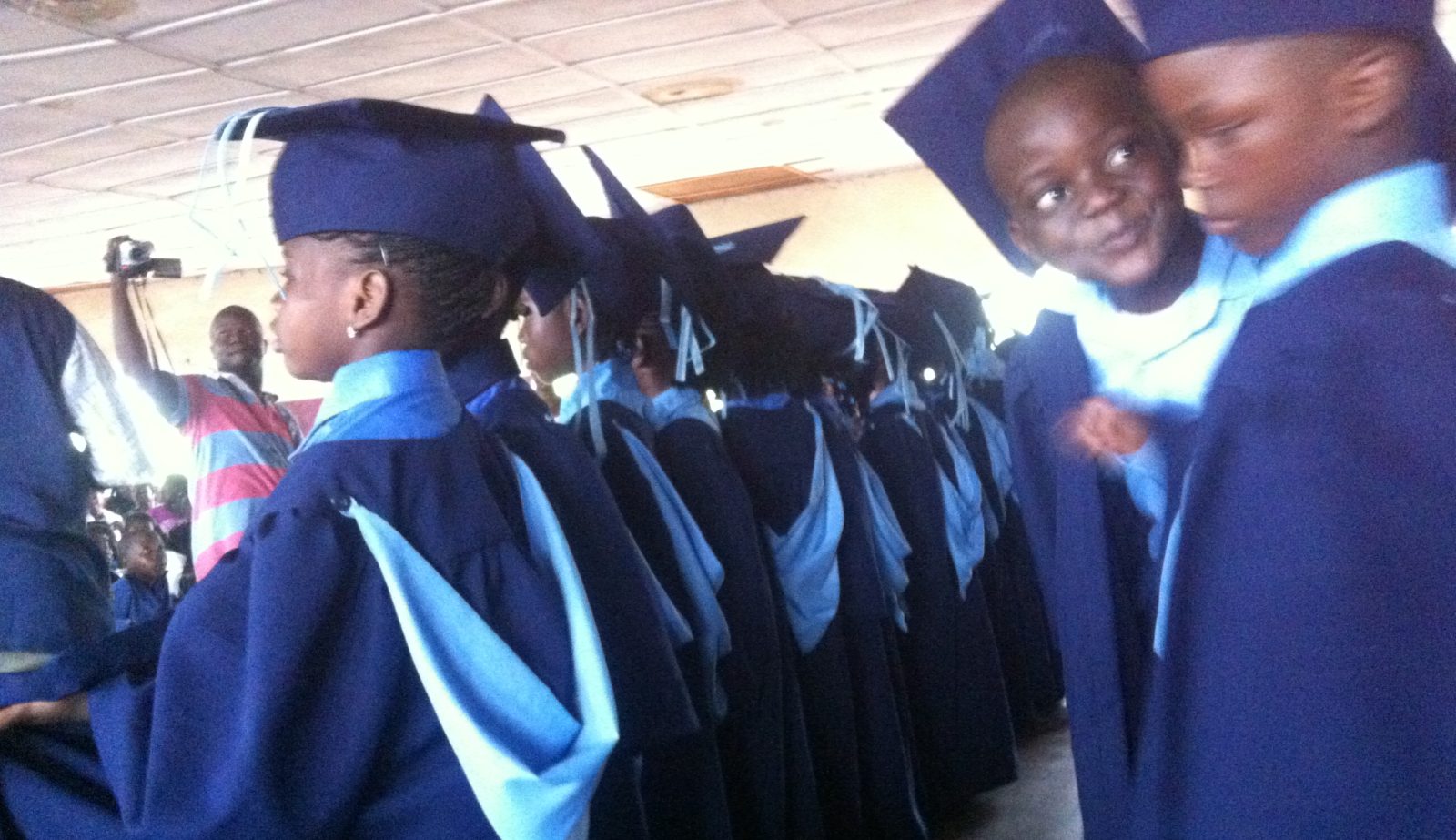Academics
The Empowering Children Primary School
The curriculum is structured around six subject areas for grades 1 and 2; Creative Practical Art, Environmental Studies, Language Arts, Mathematics, Physical Health Education and Religious Education. For grade 3 to 6, there are 8 subject areas, with Science and Pre-Vocational studies added to those above.
Environmental Studies in grade 1 and 2 is a new subject area, and is a blend of Social Studies and Science. Physical Health Education for grades 1 to 6 is an integration of Physical Education and Health Education.
In grades 3-6, Pre-Vocational Studies and Creative Practical Arts are designed to prepare pupils for the future as productive citizens. Pre-Vocational Studies integrates Home Economics and Agriculture, and Creative Practical Art prepares students for traditional industry, e.g.pottery, weaving, etc. The curriculum has many innovative ideas, even in the most traditional subject areas. The Language Arts Curriculum emphasizes the use of language in real life situations through the development of the four language skills; listening, speaking, reading and writing. For Mathematics, in addition to computation and measurement, the new topic, “Everyday Arithmetic” is added. A strong ecumenical approach is adopted in Religious Education.
The proposed content and the methodology places an emphasis on a practical and environmental, rather than theoretical character of education to be provided. The curriculum package consists of a syllabus and teacher’s guide for each subject area. For some core subjects, there are pupils’ texts, and a teacher’s manual some Physical/ Health Education classes.
The Aims of Primary Education
A summary Of the Aims Of Education given in (a) the 1970 white paper (b)1974 and 1979 national development plan, and (c) 1974/75 Education review, is to have the primary students acquire:
- Literacy in one or more languages, eventually to include at least one Sierra Leone language.
- The Official Language English Numeracy, i.e. computational skills in arithmetics, understanding of certain basic mathematical principles, and the ability to judge the quantitative result to certain discussion and actions.
- A rational outlook on national and social events through observing and understanding the environment in which the students live.
- Occupational skills at a beginning level
- A positive attitude towards themselves, their cultural background, towards work and the process of community and national development
- Positive traits of characters and ethical values
